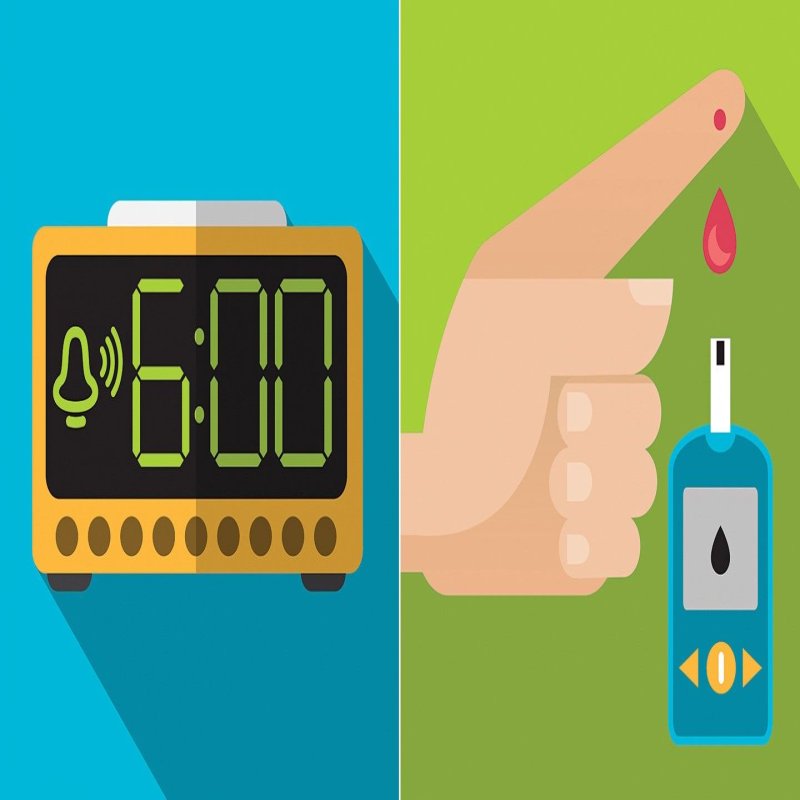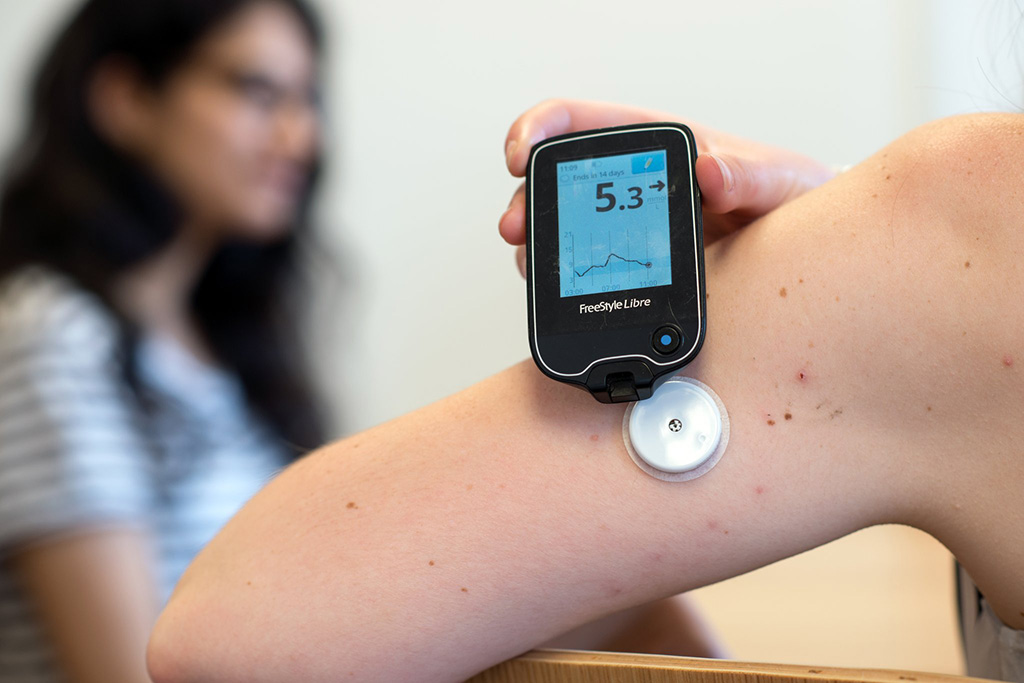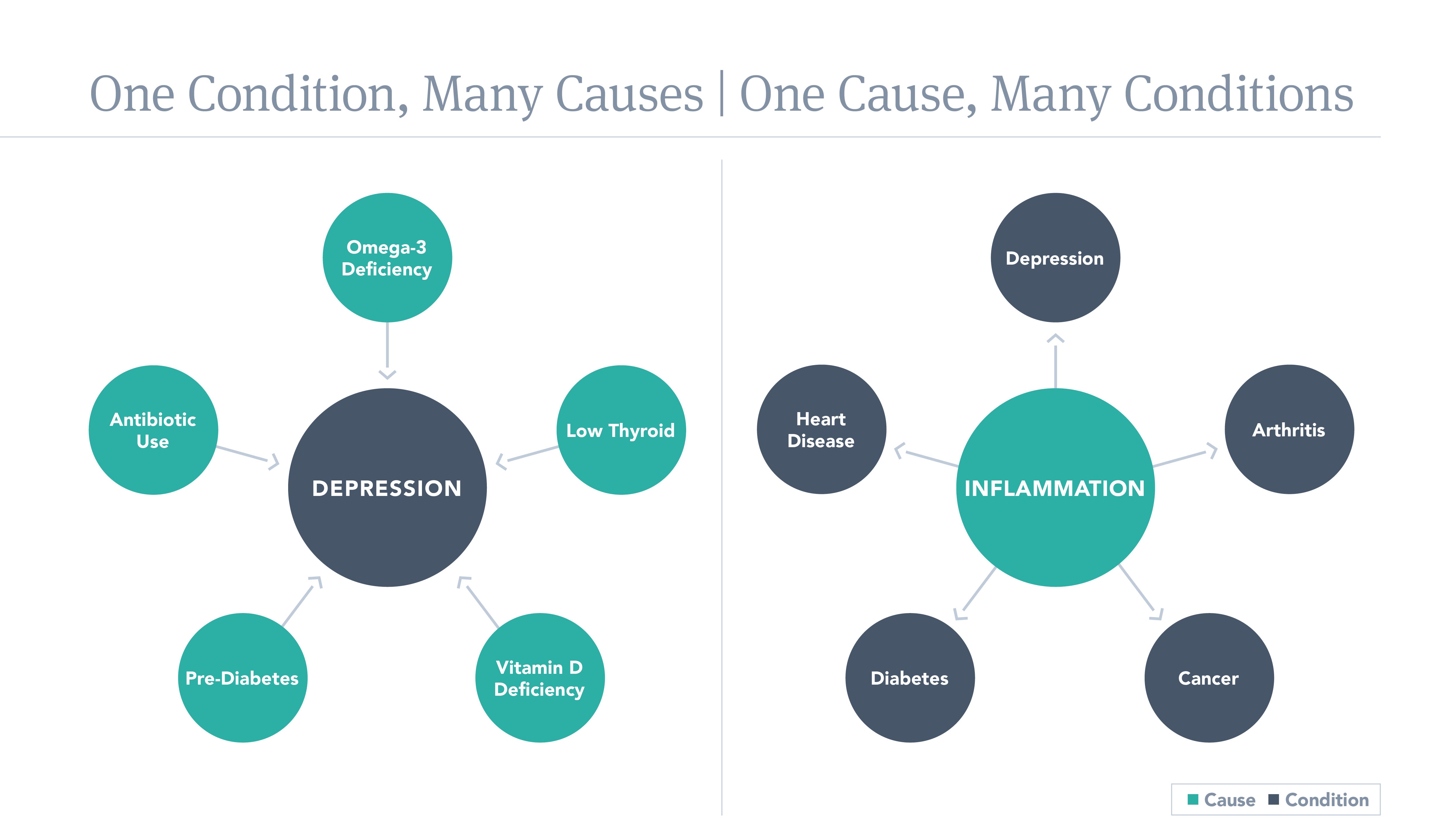
Have you ever wondered about your early morning blood sugar spike besides not taking any sugar for 9+ hours? Then, you are at the right place to find out why. What happens when you wake up? Let us dig in.
Nearly half of diabetic individuals, whether they are children or adults, regardless of age, experience high morning sugar levels, called the dawn phenomenon or dawn effect. People with type 2 or adult-onset diabetes have higher chances of showing the effect.

So, What does the Dawn Phenomenon Mean?
An unexpected, periodic rise in blood sugar levels during the early hours is because of the surge of hormones in your bloodstream, which is the body’s natural way of waking you up. The hormones that bring about this effect are growth hormones and stress hormones.
They signal your liver to release more sugar into the blood, which impacts your morning blood sugar levels and HbA1C levels (your average sugar measures over the past three months), according to the American Diabetes Association (ADA).
Insulin usually controls the increased blood sugar, which may not happen in diabetics as the body does not produce enough insulin or is considerably insulin resistant to reduce high blood sugar levels. Your body still asks you to pay close attention and review your evaluation process and treatment options.
- The dawn effect, characterized by an increase in blood sugar levels in the morning, is a natural response of the body to the release of growth and stress hormones, which can impact individuals with diabetes.
- Managing this phenomenon is crucial for maintaining stable blood sugar levels throughout the day.
Is it the Dawn Phenomenon or your High Sugar Intake?
It is time to consult your healthcare provider when you are frequently experiencing high morning sugar levels. They assess your blood sugar level and find out what is wrong.
How to Find Out?
Continuous Glucose Monitors (CGM) are commonly used to understand your glucose pattern by recording your sugar levels all day and night. Intermittent glucose monitoring may also be suggested.
Consistently high sugar levels after midnight (approximately between 3 a.m. and 8 a.m.) indicate that you have the dawn phenomenon. Possibly, preventing long-term issues by limiting high sugar is significant in the early management process.

Dawn Effect vs. Somogyi Effect
The Somogyi effect also generates high blood sugar levels in the morning, although for different reasons. If they skip a meal or a night snack or take too much or too little insulin at night, they experience the Somogyi effect. The effect results in low sugar levels overnight that go up in the morning.
For Insulin Users Out There!
Your doctor considers the dawn effect when selecting the type of insulin and method of delivery. It may not boost long-acting insulin as high insulin, causes your sugar level to drop.
An insulin pump can avoid low sugar when set to provide insulin in the early morning. However, it might not suit everyone. Insulin-takers can monitor their blood sugar levels to avoid overnight lows before early morning glucose spikes.
Now let us look at The Functional Medicine view!
In type 2 diabetic individuals, whether they use insulin or not, treating the root cause of insulin resistance and adopting lifestyle changes might be the holistic way to deal with the dawn effect.
What is Unique about Functional Medicine?
Functional medicine addresses the root of the illness due to nutritional deficiency, toxicity, or disturbance in bodily function. It focuses on your entire body's functions rather than a single problem area.

Functional Medicine Recommendations
Check with the functional medicine professionals before making the changes mentioned below:
Correct / Improve your Gut Health
Prebiotic fibers like mushroom and konjac roots help in the better absorption of metformin. Inulin in garlic and onions improves fasting blood sugar. Probiotics like yogurt help to reduce inflammation and boost gut health.
Alter your Carb Levels
Recent studies show low-carb diets help with better management of diabetes. Cut 10 to 15% from your diet. Watch out for the quality of the carbs you eat.
Consider Keto Diet
Studies show a ketogenic diet lowers HbA1c, stimulates weight reduction, reverses kidney damage, and enhances blood lipids and cardiovascular health in type 2 diabetes.
Go Gluten-Free
It enhances beta cell function, which in turn improves insulin. Gluten, according to studies, gives rise to inflammation and a leaky gut (diarrhea), which causes diabetes. Celiac disease (an overactive immune response to gluten) is a consequence of diabetes.
Include more Proteins
Protein gives the feeling of fullness and helps balance blood sugar.
Functional nutrition recommends assessing a 5-day food, mood, poop, and blood sugar log to look for spikes and patterns of the day.
:max_bytes(150000):strip_icc()/complete-keto-diet-food-list-what-you-can-and-cannot-eat-if-youre-on-a-ketogenic-diet-3-cd4cd1fc60cb455bbe7eee6e3a7d4d2c.jpg)
What else can you do to Manage the Dawn Effect?
Finally, we will explore some routines that you can modify. Check with your healthcare provider before undertaking these lifestyle changes, especially your diet.
Work up a Sweat!
- If your blood sugar tends to drop at night following late afternoon or evening exercise, morning exercise might be the best option.
- Work out early in the day or evening (depending upon individuals) so that it can aid in lowering your blood sugar levels.
- Walking, yoga, swimming, and Tai Chi are some exercises that can help.
Go for a Walk
Doing something active after dinner can help regulate your sugar levels.
Limit Carbs in the Evening
Increase the protein-to-carb intake in your evening snacks because limiting or avoiding carbs (with medical supervision) is a must.
Eat Early Breakfast
Have your breakfast (low carbs) within half an hour of waking, even if your blood sugar is high, since this may prevent the release of the contributing hormones.
Check on your Sleep
Try to go to sleep before midnight to reduce the stress hormone level. And that might help with better sugar toleration. Get 6 to 8 hours of sleep daily.
Lower your Stress Levels
- Stress causes inflammation, and insulin resistance ultimately imbalances sugar.
- Manage with relaxation techniques like yoga, meditation, etc.

Limit your Screentime and try to Avoid Late-night Dinner
Circadian rhythm (a biological clock) can be corrected by
- Getting good sleep, limiting blue light exposure, and avoiding late dinner.
- Studies show that a disrupted circadian rhythm increases diabetes risk.
Reduce Environmental Exposure
Use alternatives to BPA and phthalates (used to make plastics), as these contribute to diabetes. Buy organically produced foods and filtered water to reduce persistent organic pollutants (POPs) harmful effects.
Some Home Remedies that may Come in Handy
Choosing snacks rich in fiber and low in fat before bedtime can satisfy your hunger while reducing the dawn effect.
Apple cider vinegar is a cheap way to reduce high sugar because it changes how your body reacts to sugar, keeps you full, slows down starch digestion, and improves your HbA1C levels.

Conclusion
Do not stop until you find out!!
Join your physician to find the best way to stabilize your blood sugar level. It may take some time and effort. Each body has unique needs, so take notice of the signs when they show up.
Frequently Asked Questions (FAQs)
1. What causes the dawn phenomenon?
The dawn phenomenon occurs due to the release of growth and stress hormones in the early morning hours, which signal the liver to release more sugar into the bloodstream. This can lead to elevated blood sugar levels, particularly in individuals with diabetes who may have insufficient insulin production or insulin resistance.
2. How is the dawn phenomenon different from the Somogyi effect?
The dawn phenomenon and the Somogyi effect both result in high blood sugar levels in the morning, but for different reasons. The dawn phenomenon occurs due to natural hormonal responses, while the Somogyi effect is caused by low blood sugar levels overnight followed by a rebound rise due to inadequate insulin dosage or skipped meals.
3. How can the dawn effect be managed?
Managing the dawn effect involves various strategies, including adjusting insulin dosage, monitoring blood sugar levels, adopting a low-carb or ketogenic diet, improving gut health, increasing protein intake, engaging in regular exercise, getting sufficient sleep, reducing stress levels, and avoiding late-night meals. Consultation with healthcare professionals is important for personalized management.
Disclaimer: The information and other content provided in this blog, or in any linked materials, are not intended and should not be construed as medical advice, nor is the information a substitute for professional medical expertise or treatment. If you or any other person has a medical concern, you should consult with your healthcare provider.


.png)


